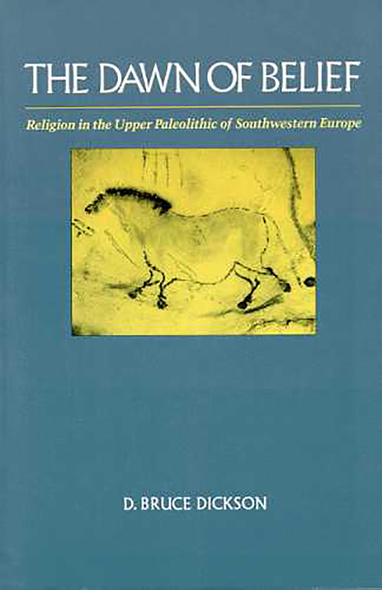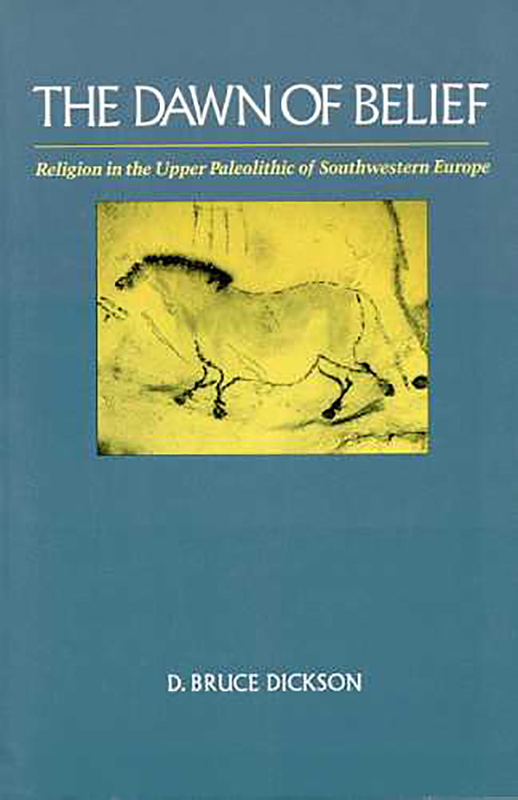The Dawn of Belief
Religion in the Upper Paleolithic of Southwestern Europe
The University of Arizona Press
Hunter-gatherers of the Upper Paleolithic period of the late Pleistocene epoch in western Europe left a legacy of cave paintings and material remains that have long fascinated modern man. This book draws on theories derived from cultural anthropology and cognitive archaeology to propose a reconstruction of the religious life of those people based on the patterning and provenience of their artifacts.
Based on the premises that all members of Homo sapiens sapiens share basically similar psychological processes and capabilities and that human culture is patterned, the author uses ethnographic analogy, inference from material patterns, and formal analysis to find in prehistoric imagery clues to the cosmology that lay behind them. The resulting book is an intriguing speculation on the nature of paleolithic religion, offering scholars a valuable synthesis of anthropological, archaeological, and sociological research, and general readers an accessible account of how our forebears may have regarded the unknown.
Based on the premises that all members of Homo sapiens sapiens share basically similar psychological processes and capabilities and that human culture is patterned, the author uses ethnographic analogy, inference from material patterns, and formal analysis to find in prehistoric imagery clues to the cosmology that lay behind them. The resulting book is an intriguing speculation on the nature of paleolithic religion, offering scholars a valuable synthesis of anthropological, archaeological, and sociological research, and general readers an accessible account of how our forebears may have regarded the unknown.
A stimulating, authoritative, and highly readable examination of the origins of human thought.’—Choice
‘Most interesting to those scholars interested in seeking materialist foundations or ecological explanations for religious practices.’—American Antiquity
‘This excellent study reconstructs the ancient religions of Southwestern Europe from 35,000 to 10,000 years before the present. Building on the available archaeological evidence, Dickson shows what we know—and don't know—about this era’s peoples and their religious practices. Both scholars and general readers will appreciate the book’s clear review of the literature on paleolithic material culture, on the formal analysis of prehistoric cave and mobiliary art, and on what can be inferred about the period from studies of modern hunting-and-gathering peoples. . . . Well-written and highly recommended.’—Religious Studies Review
‘A well-written and intellectually rigorous introduction. If you are curious about prehistory, you will enjoy it.’—Wilson Library Bulletin
‘A well-written and concise account of what has recently been achieved by the investigations of spiritual life of the Earth’s most ancient human communities.’—Archiv Orientalni (Czechoslovakia)





